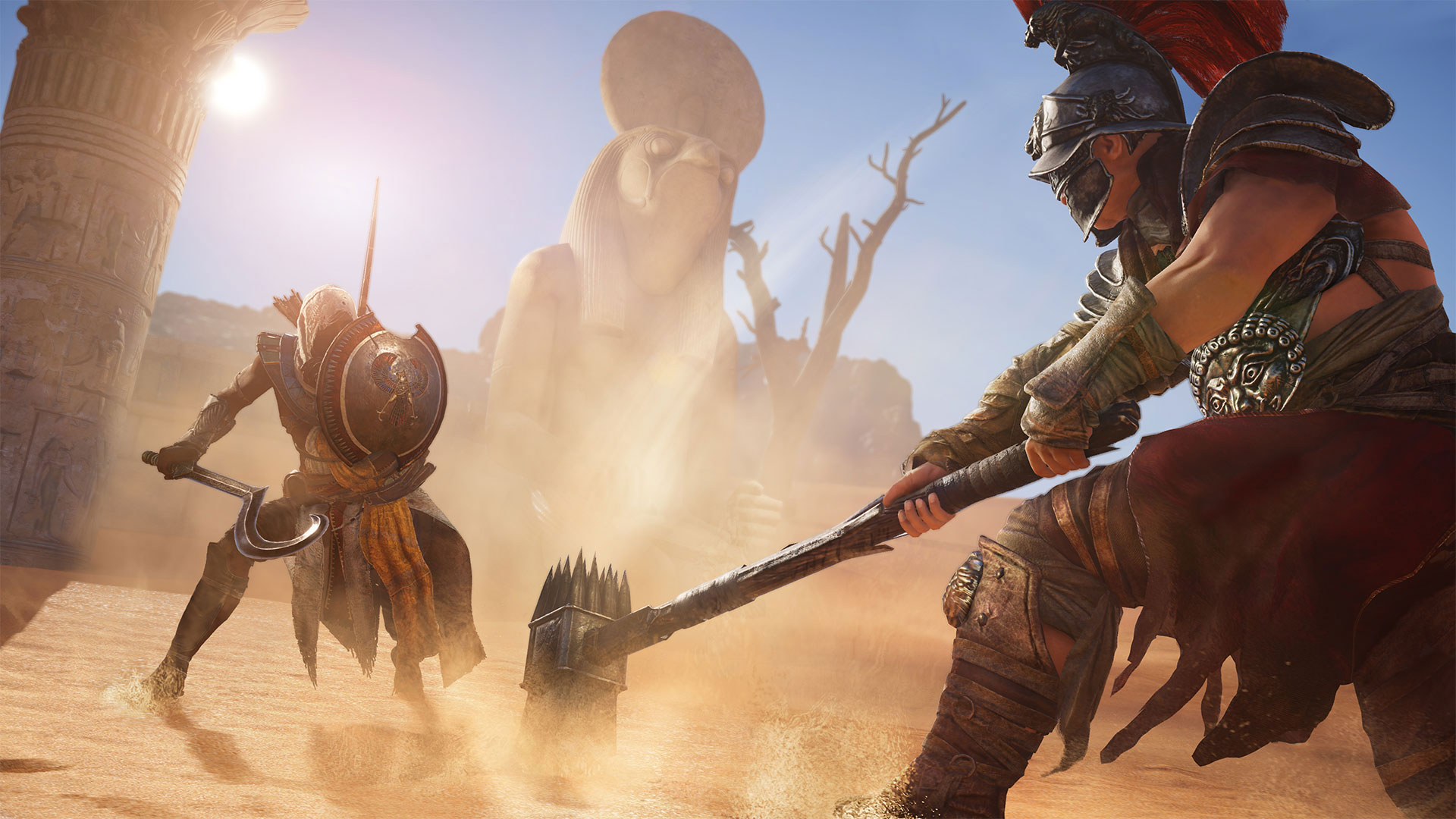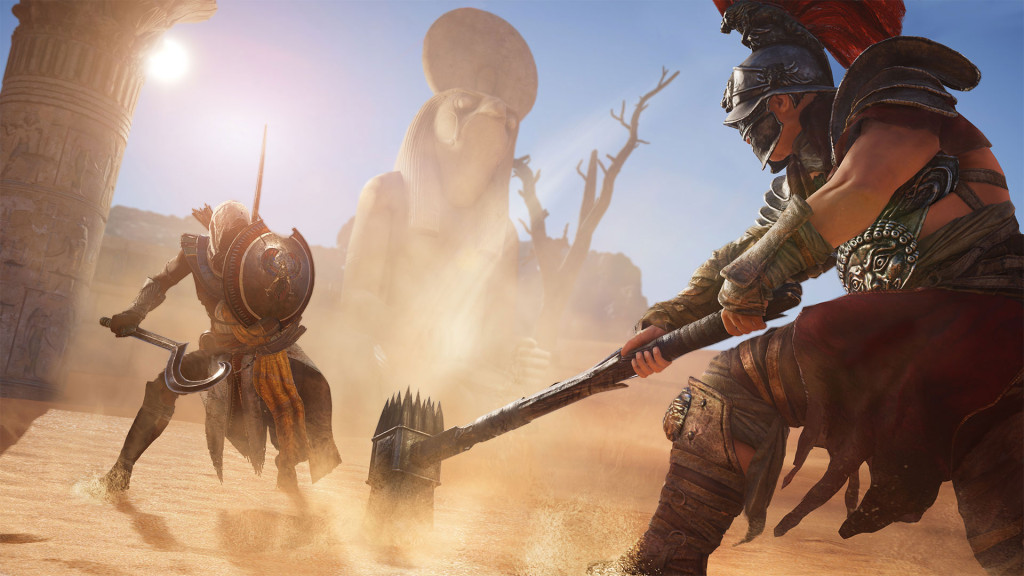Have we been spoilt by videogames? It is a question that often wanders into the mind, particularly when playing franchises like Assassin’s Creed, in which long gone historical eras are casually presented to us in graphical form as if this is the most normal thing in the world. So inured are we to the alchemy of the craft that we are presented with a moving, to all intents and purposes living, representation of Revolution France, Renaissance Italy or, in the instance of Origins, Ancient Egypt, and we still find room to complain that it is not real enough. Perhaps our desires will be sated if, like in Westworld, someone invents a fully interactive theme park where all tastes are catered for and where no moral compunctions are necessary. For a quick refresher on how far civilisation has travelled, figuratively speaking, one need only do a quick search online for Chuckie Egg or Horace Goes Skiing. Yes, titles such as those flourished creatively under the limitations of the time yet they do not hold a digitally rendered candle to what is on display in Origins: a near as dammit approximation of the sweeping, sun-kissed vistas of Egypt, with its pyramids, markets, ruins and waterways, all of which can be fully explored and plundered for treasures and collectibles. It would be wrong to reveal how this new location and time period plays into the overarching Assassin’s Creed narrative but longterm fans will be rewarded by how it is woven into what we have learnt before. Yes, there is the central character, a vengeful Medjay named Bayek, who must become a champion of the people by removing (i.e. bumping off) a rogues gallery of increasingly machiavellian authority figures, and there is an air of familiarity to how he begins to untangle this tapestry of corruption. However, a mythology rooted in beliefs in multiple gods and the afterlife is a perfect fit for the bug-nuts narrative of Assassin’s Creed, and Egypt makes for a more interesting backdrop than the settings from several previous games from the franchise. Put simply, Origins looks gorgeous, and at times it is tempting to pause for minutes to admire the heat haze dancing on the ridges of dunes, sun flare breaking through palm leaves and glinting off the tapered points of obelisks, or crowds of people milling around inside colourful bazaars… here we have a literal sandbox in which to play, and the presentation is exceptional.
As eye-catching as it may appear, Egypt is also teeming with danger. In Origins, as with the territories presented in the Far Cry series, death – or perhaps Anubis – lurks behind every palm tree and inside every temple. Bandits and loyalist forces want to spill your blood… crocodiles and hyenas want to tear your flesh… sandstorms and swarms of locusts sweep in without warning. It makes for a deeply oppressive atmosphere but one that also makes the enterprise compelling. No conflict, no drama, as George Bernard Shaw put it, and there is plenty of drama here. A little too much at times, perhaps, as the story, as with other Assassin’s Creed yarns, can occasionally steer into hyperbole. However, one suspects that a game centred on conspiracy theories, virtual reality consoles and cyberterrorists is not made for those who enjoy understatement. Again, the blurring of timeframes – the present and the computer generated past – is one of the qualities that makes Origins so unsettling. There is the constant sensation that what you are viewing as a gamer is not real – and yes, of course, it is not real but the avatar that you are controlling is not aware of the artifice surrounding them. It is a brilliant conceit that lends the whole enterprise an eerie quality the presence of a digital HUD, the “desynchronisation” from memories when you die, the overlaying of icons on an antique map… this collision between old and new gives Origins a quality not likely to be experienced in any other game.
As for gameplay, core Assassin’s Creed mechanics – which, to some, had grown stale – have been redeveloped from bottom to top. Movement is fluid and controls are tight, particularly in the climbing that form such an integral part of the action. There is also the new addition of an eagle that can be controlled to scope out an area to plan attacks, select targets, look for weaknesses etc. It’s a neat twist that adds another element of freedom and one that affords you a literal bird’s eye view of the kingdom. Critics will carp that none of these things are particularly fresh, that such bells and whistles are minor improvements to a series that has run its course (one wonders if the same criticisms are levelled at the latest Call Of Duty, which does not deviate wildly from its roots) yet in response we should return to the question that opened this review: have we grown jaded with such amazing feats of technological ingenuity and design? One wonders if the ancient Egyptians, if they were allowed the opportunity to travel to our contemporary era, would think the same: “I don’t know about you, Imhotep, but those scarab beetles just don’t look real to me.” Nope. This, of course, is nonsense. Assassin’s Creed: Origins is another quality release in a franchise that keeps making bold decisions and taking the player to impossible places. Ross Thompson







